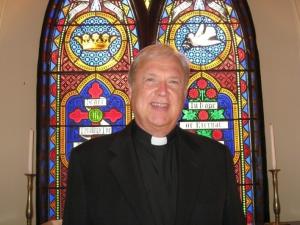 What is the purpose of preaching? To tell stories that fascinate, syntelate, and titillate, right? No. At least not according to Patheos columnists C. Don Jones or Scott McKnight.
What is the purpose of preaching? To tell stories that fascinate, syntelate, and titillate, right? No. At least not according to Patheos columnists C. Don Jones or Scott McKnight.
Preacher stories are lies. Don’t believe them. This is what C. Don Jones tells us in his Patheos column post, “Preacher Stories and Other Lies.” Is Jones telling us the truth? Or, is Jones telling us a lie?
Should our pulpit preachers tell lies, even itsy-bitsy little lies?
Whether a preacher story is a lie or not, Scott McKnight takes a stand against preacher stories in general. “Because Jesus told stories is not a license for preachers to tell only stories and not preach the Word.”
Like Mary the Mother of our Lord, let’s ponder in our heart this question: what is the purpose of preaching?
Preacher Stories at Camp Hok-Si-La
Before my pastoral internship. I served as a Boy Scout Chaplain at Camp Hok-Si-La near Lake City, Minnesota. The chapel included boards atop rocks for pews. These pews were oriented toward a brick altar atop a cliff overlooking a widening in Mississippi River called Lake Peppin. Beautiful setting.
I was assigned a seventeen-year-old Eagle Scout as the Chaplain’s Assistant. He ushered. I preached.
Each of my sermons centered around a story and its meaning. Stories were effective at keeping the attention of scouts whose wandering eyes would otherwise stare at fluttering birds or the rolling waves of the Mississippi.
My Eagle Scout became enamored. “Could I preach sometime?” he begged me.
 “Of course,” I responded as a proud mentor.
“Of course,” I responded as a proud mentor.
The evening came when he preached. For a teenager, his sermon was of a quality well beyond what I would expect for his age. He copied me. He centered his sermon with a story. It was gripping. Dramatic. Pointed. “Marvelous,” I thought.
When debriefing, I asked him about his story. “Oh,” he said, “I just made it up.”
I gulped. “Ouch!” It never would have dawned on me to make up a story. My stories were either true or verbally footnoted as borrowed fables. Awkwardly, I tried to explain this to him.
He looked at me puzzled. He failed to grasp what might be at stake. Actually, it was my first time to think about it. Now I ask: just what is the purpose of preaching again?
Remind me: What is the true purpose of preaching?
Remind me: what is the purpose of preaching in the first place? Roger Olson tells us in the words of Martin Luther and John Wesley.
So what is the true purpose of preaching? John Wesley said it best. It is to afflict the comfortable and comfort the afflicted. Martin Luther said it is to present to hearers both “law” and “gospel”—you should but you can’t (by yourself) obey God completely. I say, in addition, not in contradiction, it is to present the gospel of Jesus Christ to a congregation and, usually, apply it to their lives.
The gospel is the story of Jesus told with its significance. The significance of this story is found in the threefold promise of new creation, justification, and proclamation. Telling this story with its significance constitutes preaching the Word of God.
Our God is a gracious God, and the purpose of preaching God’s Word is for the benefit of the listener, not the benefit of the preacher. Those hearing the preacher’s words should come to feel God’s grace, to know God’s grace, to embrace God’s grace.
Even though it is the preacher’s words that we listen to, it is the Word of God we want to hear. Does this help as, like Mary, we ponder the purpose of preaching in our heart?
Ego versus Truth
Jones is quite concerned that a preacher story will inflate the preacher’s ego while sacrificing truth.
Pulpit illustrations should be enlightening. They should not pander to the prejudices of the audience. They should not make the preacher the hero. Better knowledge of biblical narratives and interpretation tools are necessary to develop homilies that avoid such pitfalls. The stories we tell are not tales of self-aggrandizement. They are narratives that give the people of God our identity.
If there is any morality to preacher stories, certainly it is this: the story should make way for the gospel message. This implies that the preacher’s ego should not block God’s Word with diversionary titillation, pomposity, or self-aggrandizement.
New Age Prosperity gospel? Is that good preaching? Not according to Matthew Distefano.
Morgan Guyton makes me laugh when saying that “sugary preaching leads to truth decay.”
Truth Accompanied by Truthfulness
Perhaps Jones is on target when shooting arrows at fake preacher stories. Perhaps the word I’m searching for here is “integrity.” Truth integrates with truthfulness, not with deceit. Even deceit that is well-intended.
We are ordained to preach the gospel solely because we earnestly believe it to be true. Further, we believe the gospel is the ultimate truth. The gospel points to the God that integrates all of reality. Everything in reality is oriented toward the one God of grace.
Why might a preacher slip a lie—even a tiny itsy-bitsy lie—into this integrated worldview?
Alternative Facts, Fake News, Ideology, and Preaching
 Like the Mighty Mississippi which overflows its banks each spring and inundates the landscape, today’s social media inundates our psyches with an overflow of alternative facts, fake news, and vicious ideologies. This is disorienting. Our psyches cry out for an integrated worldview wherein both little things and big things make sense.
Like the Mighty Mississippi which overflows its banks each spring and inundates the landscape, today’s social media inundates our psyches with an overflow of alternative facts, fake news, and vicious ideologies. This is disorienting. Our psyches cry out for an integrated worldview wherein both little things and big things make sense.
Even though the whole is greater than the sum of the parts, the integrity of the parts is important as well. This includes the stories we tell.
What is the purpose of preaching? Like Mary, let’s continue pondering this question in our heart.
▓
 Ted Peters is a Lutheran pastor and emeritus seminary professor. He is author of Short Prayers and The Cosmic Self. His one volume systematic theology is now in its 3rd edition, God—The World’s Future (Fortress 2015). He has undertaken a thorough examination of the sin-and-grace dialectic in two works, Sin: Radical Evil in Soul and Society (Eerdmans 1994) and Sin Boldly! (Fortress 2015). Watch for his forthcoming, The Voice of Public Christian Theology (ATF 2022). See his website: TedsTimelyTake.com.
Ted Peters is a Lutheran pastor and emeritus seminary professor. He is author of Short Prayers and The Cosmic Self. His one volume systematic theology is now in its 3rd edition, God—The World’s Future (Fortress 2015). He has undertaken a thorough examination of the sin-and-grace dialectic in two works, Sin: Radical Evil in Soul and Society (Eerdmans 1994) and Sin Boldly! (Fortress 2015). Watch for his forthcoming, The Voice of Public Christian Theology (ATF 2022). See his website: TedsTimelyTake.com.
▓














